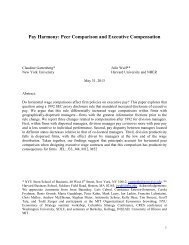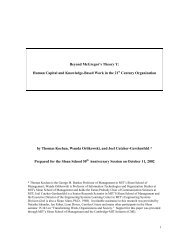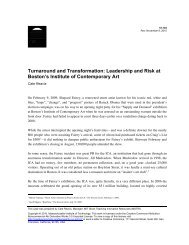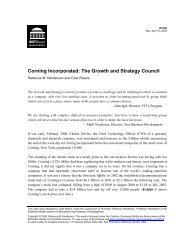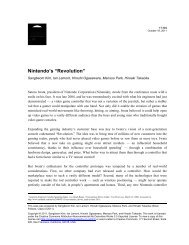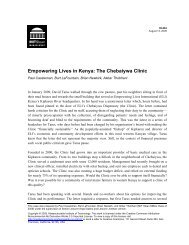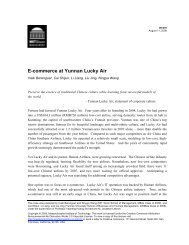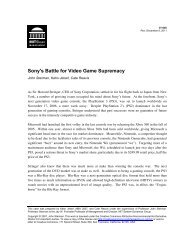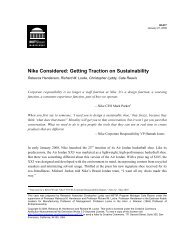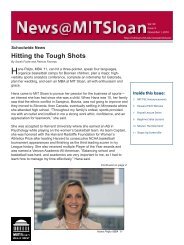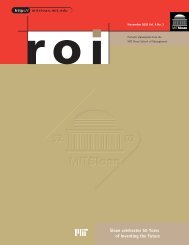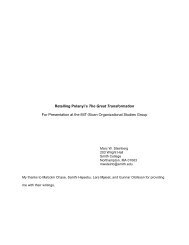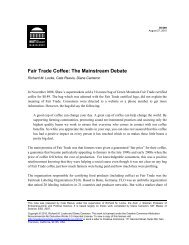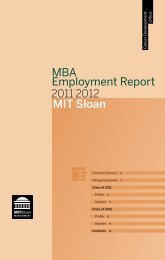Understanding earnings quality - MIT Sloan School of Management
Understanding earnings quality - MIT Sloan School of Management
Understanding earnings quality - MIT Sloan School of Management
You also want an ePaper? Increase the reach of your titles
YUMPU automatically turns print PDFs into web optimized ePapers that Google loves.
expenditures in the pharmaceutical industry provides <strong>earnings</strong> streams that are more closely<br />
associated with fundamental values than immediate expensing or full capitalization. Moses (1987)<br />
attempts a direct assessment <strong>of</strong> the impact <strong>of</strong> methods on <strong>earnings</strong> <strong>quality</strong> proxies in a large sample.<br />
He suggests that firms change accounting methods to achieve smoother <strong>earnings</strong>. His analysis<br />
includes all methods changes; they are primarily associated with inventory and pension accounting.<br />
Income-increasing changes are more likely than income-deceasing changes, and the propensity for<br />
changing is positively associated with firm size, existence <strong>of</strong> a bonus plan, and incentives for<br />
meeting <strong>earnings</strong> targets.<br />
Five studies examine choices <strong>of</strong> specific accounting methods. Loudder and Behn (1995) and<br />
Altamuro, Beatty and Weber (2005) suggest that R&D capitalization and pre-SAB 101 revenue<br />
recognition practices, both <strong>of</strong> which are generally income increasing, result in more informative<br />
<strong>earnings</strong> as measured by ERCs. Lev and Sougiannis (1996) use a clever research approach to<br />
understand the implications <strong>of</strong> method choice for <strong>earnings</strong> <strong>quality</strong>. They use real firm data to<br />
“simulate” <strong>earnings</strong> outcomes if R&D were (pseudo) capitalized and show that the capitalized<br />
amounts are associated with information used by equity markets to value high-R&D firms (i.e.,<br />
value-relevance). Aboody, Barth, and Kasznik (1999) find that asset revaluations in the UK are<br />
positively related to future operating income and cash flows and investors respond positively to<br />
revaluations. Sivakumar and Waymire (2003) exploit a change in fixed asset accounting rules in the<br />
early 1900s and find evidence <strong>of</strong> increased asymmetric timeliness using the Basu metric<br />
(conservatism), but no evidence <strong>of</strong> smoothing, where smoothing techniques could incorporate<br />
artificial accounting accruals or real cost management.<br />
89



